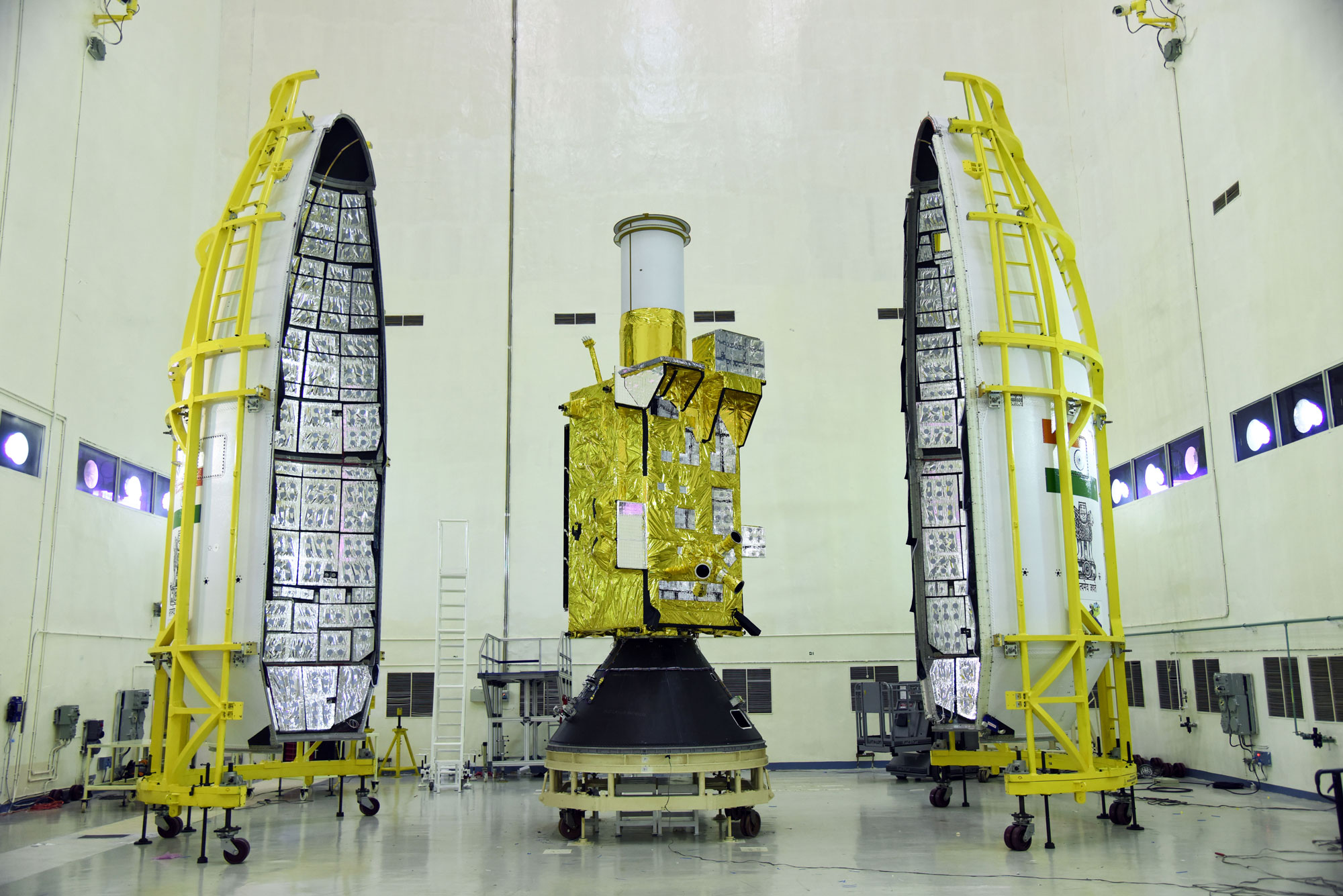India postpones powerful Earth-imaging satellite launch for 'technical reasons'

A powerful imaging satellite from India that was set to launch Thursday (March 5) is delayed indefinitely due to an undisclosed technical problem, according to multiple reports.
The Indian Space Research Organisation announced that the launch of Gisat-1 was "postponed due to technical reasons. [The] revised launch date will be informed in due course," according to a brief press release,
The satellite was supposed to launch on the Indian Geosynchronous Satellite Launch Vehicle (GSLV) rocket from Satish Dhawan Space Centre, on the east coast of India. This was to be the first launch of the GSLV series in 2020. A new launch date has not yet been announced, and no more details about the technical issue were available in ISRO or media reports.
Related: India admits its lander crashed, cites problem with braking thrusters
Once operational, Gisat-1 is designed to work in geosynchronous orbit, which is roughly 22,000 miles (36,000 kilometers) above the planet. This position will allow the satellite to continuously monitor the Indian subcontinent and nearby ocean waters when skies are clear, according to ISRO's website. The satellite will provide imagery with a resolution of 137 feet (42 meters) and will last at least seven years in orbit, according to Spaceflight Now.
The satellite can take pictures in multiple wavelengths of light at the same time, according to the mission's launch kit. Gisat-1's goals are to perform real-time imaging over a large swath of territory, providing rapid information about natural disasters and other short-term events. This data should also show long-term trends in fields ranging from agriculture to forestry to cloud properties. A twin satellite, Gisat-2, is scheduled to join Gisat-1 in orbit in August.
GSLV comes in a couple of variants. The rocket version that was supposed to launch Gisat-1 was a Mark II, while this version of GSLV has made 13 launch attempts, between 2001 and 2018, according to data from ISRO, with 10 successful missions.
Breaking space news, the latest updates on rocket launches, skywatching events and more!
- Do not fear failure. The lessons are important. (op-ed)
- India looks beyond the moon to Mars, Venus and astronaut missions
- 'We came very close:' Indian PM lauds Chandrayaan-2 team
Follow Elizabeth Howell on Twitter @howellspace. Follow us on Twitter @Spacedotcom and on Facebook.
OFFER: Save at least 56% with our latest magazine deal!
All About Space magazine takes you on an awe-inspiring journey through our solar system and beyond, from the amazing technology and spacecraft that enables humanity to venture into orbit, to the complexities of space science.

Elizabeth Howell (she/her), Ph.D., was a staff writer in the spaceflight channel between 2022 and 2024 specializing in Canadian space news. She was contributing writer for Space.com for 10 years from 2012 to 2024. Elizabeth's reporting includes multiple exclusives with the White House, leading world coverage about a lost-and-found space tomato on the International Space Station, witnessing five human spaceflight launches on two continents, flying parabolic, working inside a spacesuit, and participating in a simulated Mars mission. Her latest book, "Why Am I Taller?" (ECW Press, 2022) is co-written with astronaut Dave Williams.

